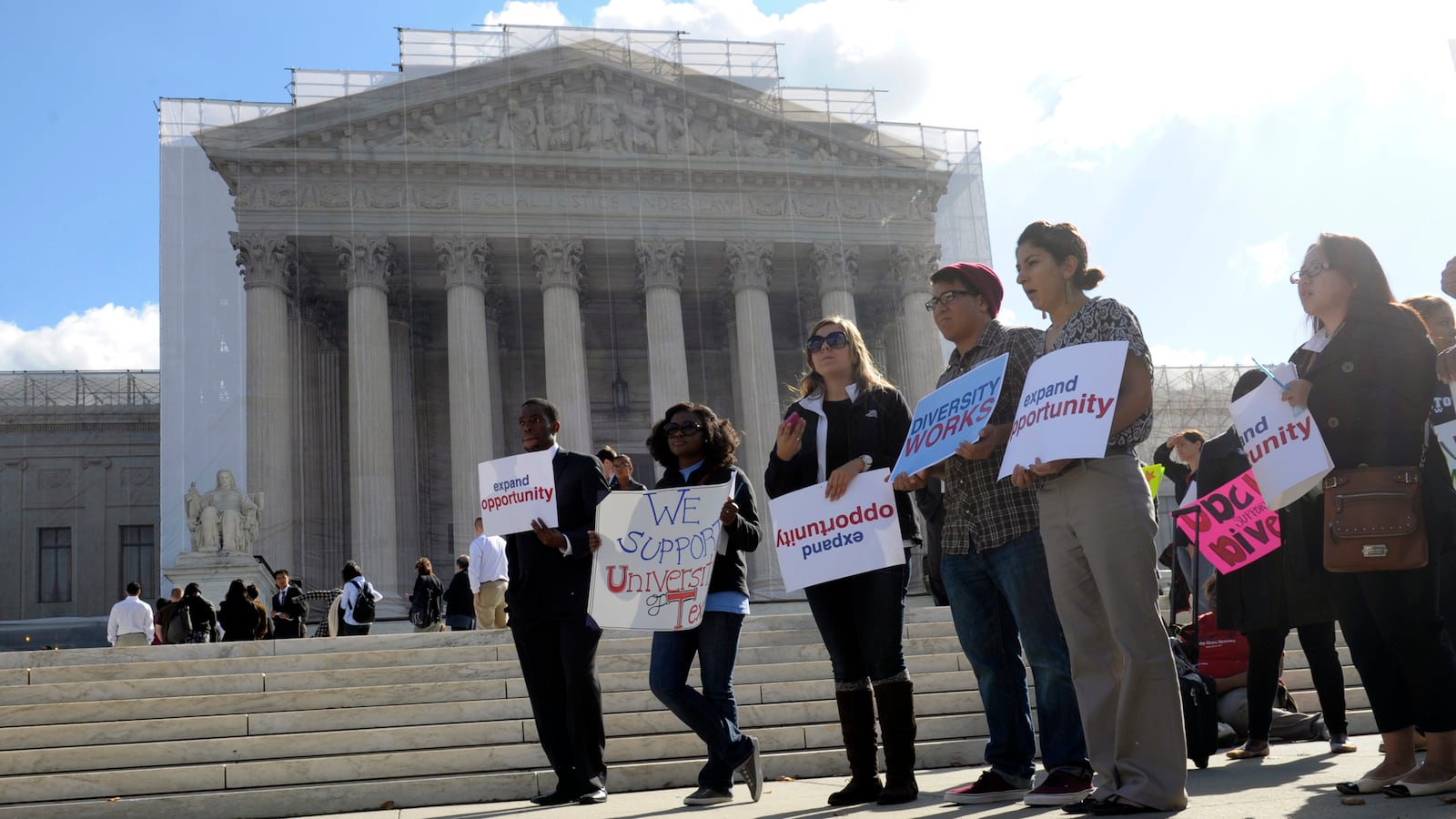In a surprising outcome, the Supreme Court today in a 7–1 decision allowed the University of Texas’s policy on affirmative action in admissions to survive. Many court watchers were expecting the justices to outlaw or seriously curtail all uses of race by government actors. Instead, the justices simply overturned a lower-court decision because that court didn’t analyze the law properly. But the court did not say that UT’s policy was unconstitutional; indeed, on remand, it’s possible the courts will uphold UT’s policy.


What’s most interesting about today’s decision is what it doesn’t say. This case was argued in the first week of the Supreme Court’s term, way back in October. Yet the opinion delivered today, which is only 13 pages in length and has only one, short, four-page dissent, did not take eight months to write. This is a case whose opinions, more likely, were written in a few days, probably within the last few weeks.
Many people expected the court to overturn an important ruling from 2003, Grutter v. Bollinger. In that case, the court upheld the use of race in admissions to the University of Michigan, saying that such policies could survive even the most stringent judicial scrutiny. Diversity, the court held, was a compelling reason for universities to take race into account, so long as they avoided using quotas and considered each applicant individually. While Justices Clarence Thomas and Antonin Scalia wrote separately in today’s case that they were open to overturning Grutter, none of the other justices expressed agreement. Instead, all the others voted to maintain Grutter as the supreme law of the land. (Justice Elena Kagan was recused from the case because she participated in the suit as solicitor general.)
So why did the short, do-nothing opinions in the UT case take over eight months to write? Almost certainly because these weren’t the opinions being written for the past eight months. In all likelihood, the justices were writing different opinions, perhaps even a bold, forceful one from the court’s conservatives outlawing all uses of race. That would explain the delay. Such a decision would have been difficult to write because it would have been contrary to nearly a half century of Supreme Court cases allowing some uses of race, like Grutter. The liberals would certainly have written impassioned dissents, calling out the conservatives for their judicial activism and assertive rewriting of the Constitution. The conservatives would have responded in kind, defending their approach. The back and forth could easily have gone on for months.
We don’t know what happened, but one possibility is that the chief justice had cold feet. After a series of quite activist decisions early in his tenure—including the widely denounced ruling in Citizens United, permitting corporations to spend unlimited amounts of money to influence elections—Chief Justice John Roberts may finally be living up to his promise to support narrow, consensus rulings that don’t upset current law. That certainly seems to be what happened in last year’s Obamacare case, when he changed his vote at the last minute and decided to uphold the president’s signature legislative accomplishment. Perhaps it happened here again, and the chief justice brokered a compromise to kick this case down the road for another day.
That he was able to do so in the UT case—if, indeed, that’s what happened—it would be a remarkable accomplishment. Justice Anthony Kennedy, the author of today’s opinion, has previously been highly critical of Grutter, dissenting in that case and castigating the majority for its “abandonment of strict scrutiny.” Yet, today, Kennedy wrote approvingly of Grutter and its approach to strict scrutiny.
The court’s biggest affirmative-action case thus ends, like the world itself in T.S. Eliot’s The Hollow Men: “Not with a bang but a whimper.”






